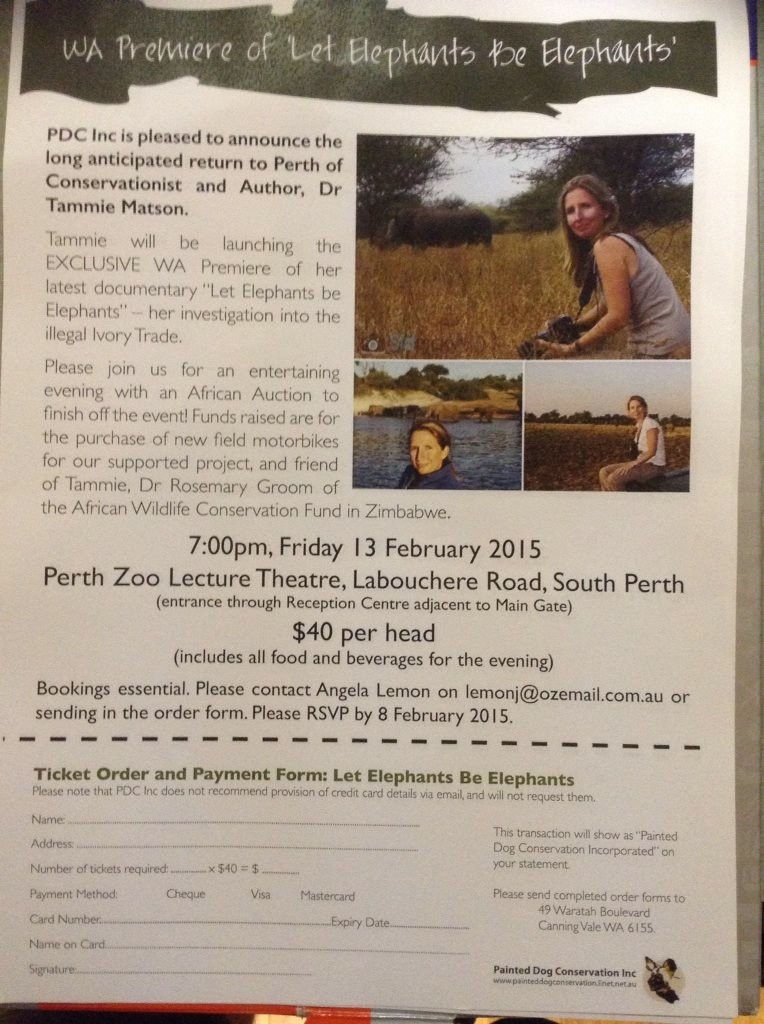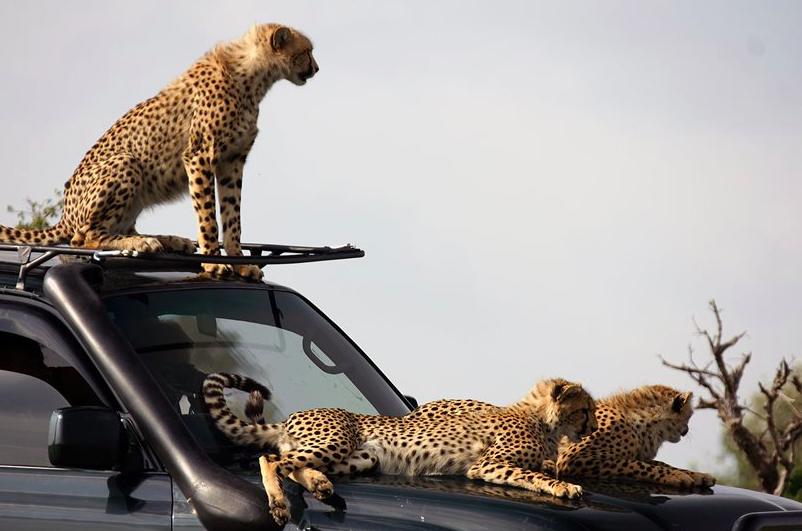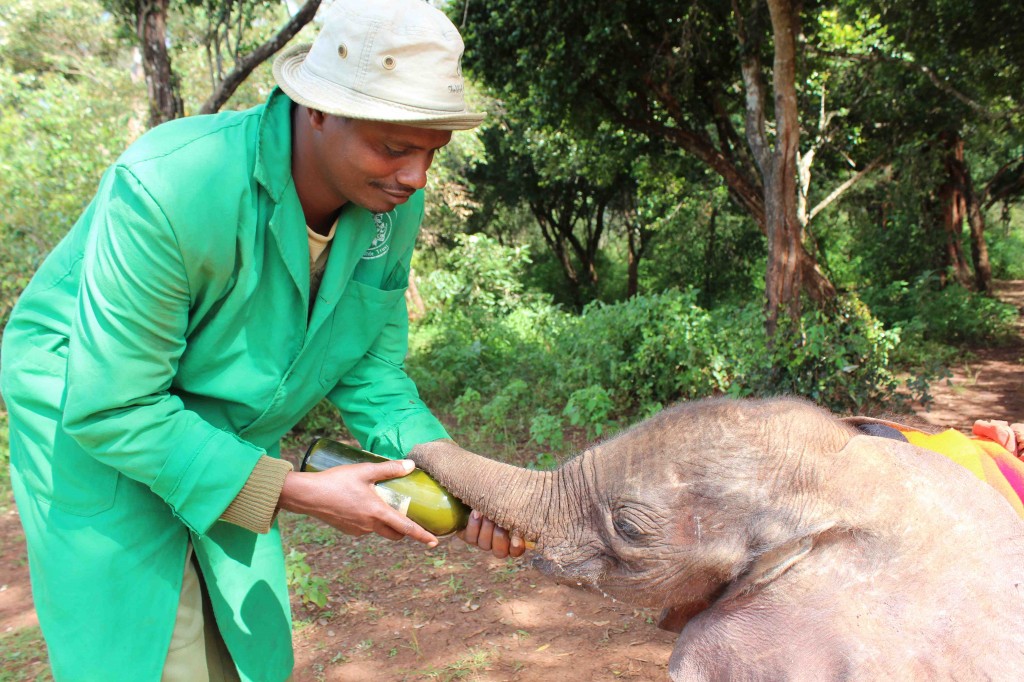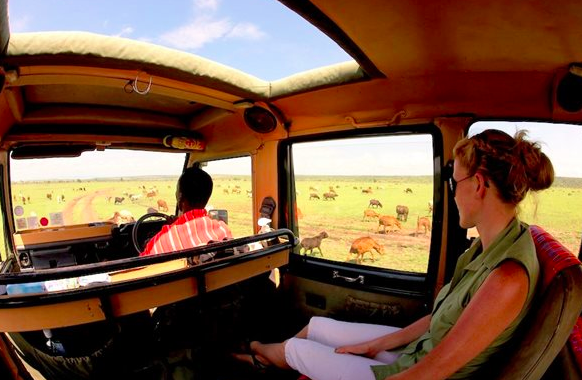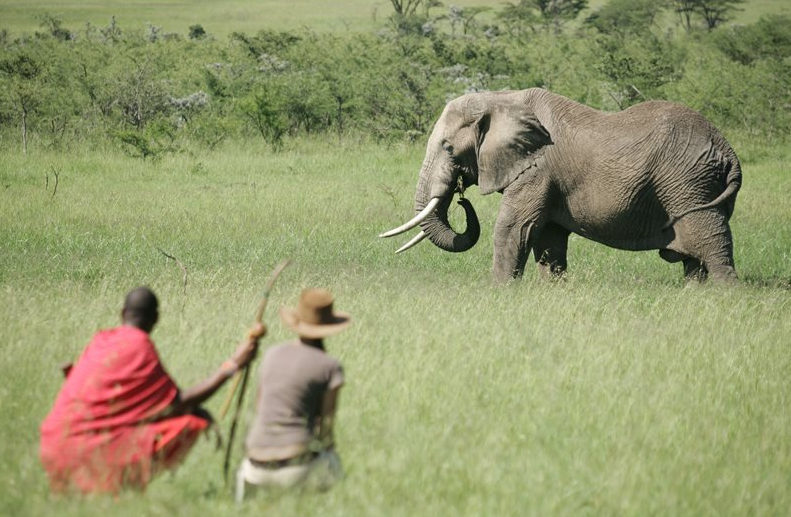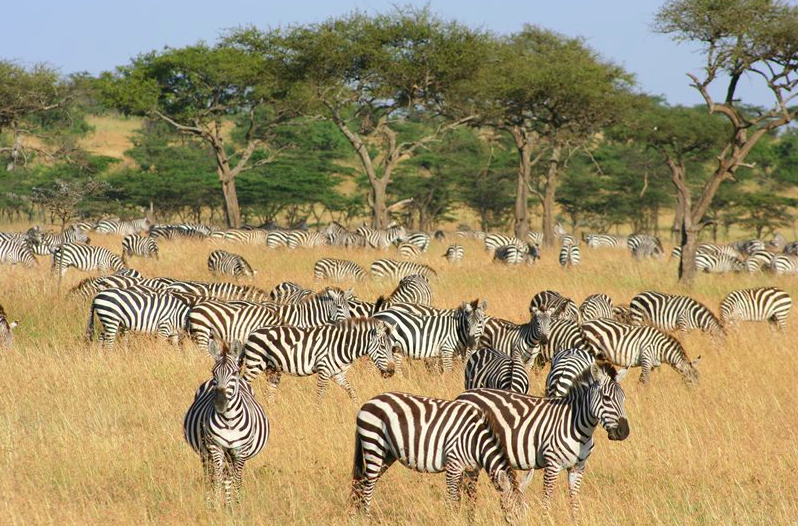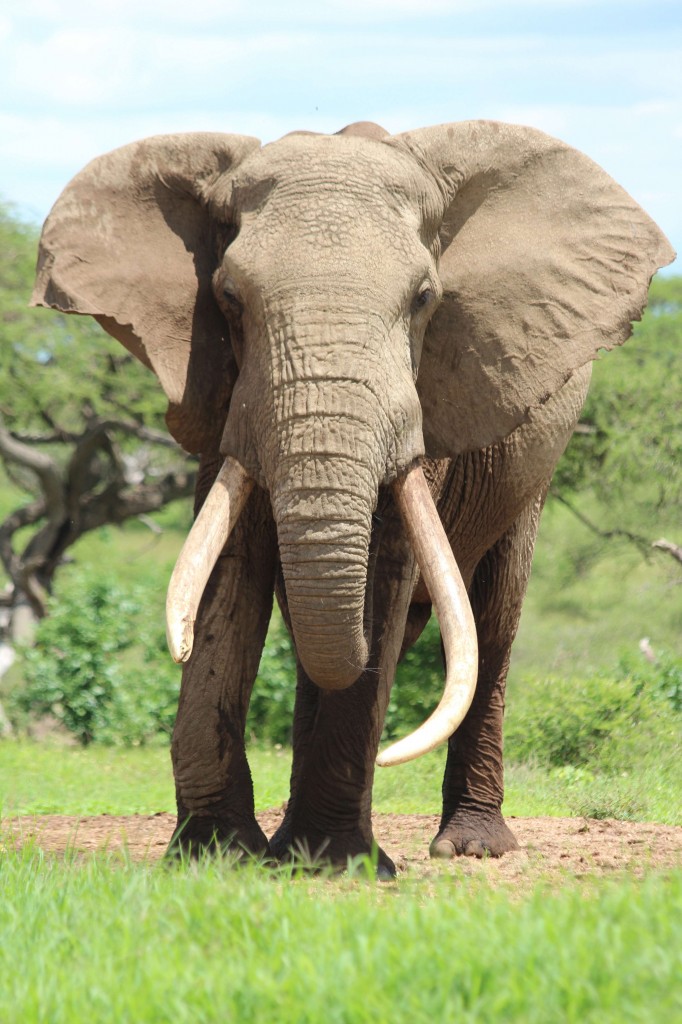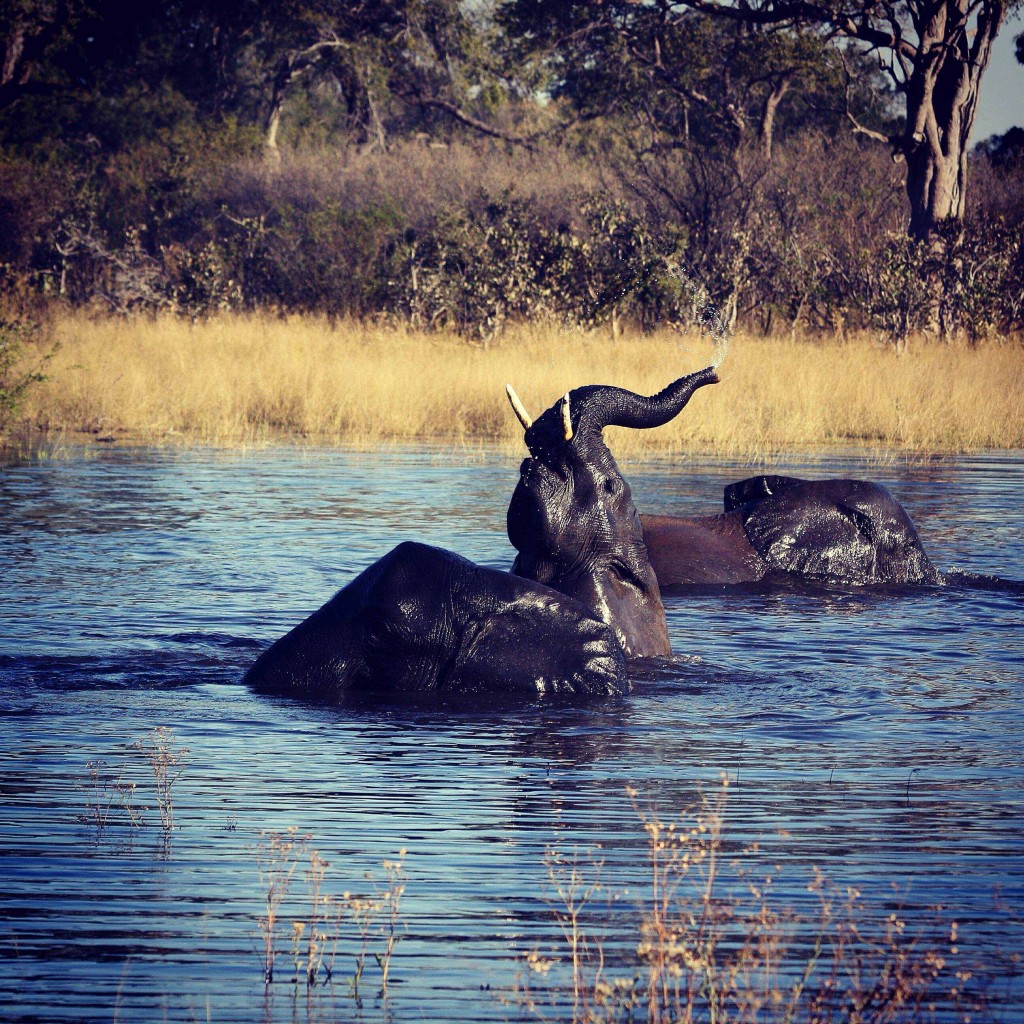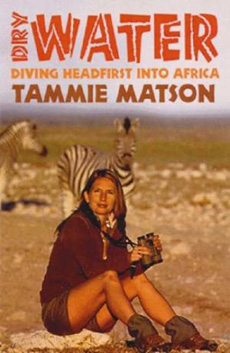Aussie team work to reduce demand for rhino horn in Vietnam
About a year or so ago I heard about a Melbourne-based team working to stop demand for rhino horn in Vietnam through targeted advertising. The team, who are all volunteers, is led by Lynn Johnson on a project she founded called Breaking the Brand. They have the pro bono support of award winning Australian advertising team Nigel Dawson and Randal Glennon. We all know how devastating the poaching of rhinos is across Africa now, and how hard the guys on the ground like Bryce and Lara Clemence in Zimbabwe (from a recent blog of mine) are working to stop the poachers, at considerable loss of life (human and rhino), so what’s happening to combat the lucrative rhino horn trade at the source? After all, if we don’t stop that, we’ll be fighting poaching and illegal trade forever, and that’s just not sustainable.
Postponement of Africa event in Bangalow & news on WA event
Due to some wild weather headed towards the northern NSW coastline, locals are battening down the hatches so we’ve decide to postpone our Africa night at the Bangalow Heritage Centre to March. New date to be advised shortly. Thanks to everyone who booked and apologies for this, but we hope you can make it on the new date. Stand by for more details!
Thanks to everyone who came along to last week’s event in Perth to raise funds for the African Wildlife Conservation Trust, specifically for the African wild dog research and conservation project in Save Valley Conservancy, Zimbabwe. It was another fantastic night with lots of fellow lovers of Africa, talking about both elephants and African wild dogs and their plight in the wild, and it was great to meet some old friends and meet new ones with a similar passion. Best of all, the night raised enough for almost 4 motorbikes for the African wild dog project in Zimbabwe – a great result! Big thanks especially to the fantastic team at Painted Dog Conservation Inc. led by the tireless John and Angela Lemon who invited me over. It’s local community efforts driven by passionate individuals like this that keep important conservation work going on the ground in Africa. A massive salute to them and those who support them. (more…)
Inside Story on Zimbabwe’s Rhinos
It’s not often that you hear good news from Zimbabwe, and even rarer that you hear good news in conservation. So this blog might come as a surprise to some because for once it’s not bad news! If you came along to the fundraiser I did with the SAVE Foundation in Sydney in August last year, linked to the launch of my latest book “Planet Elephant“, you helped raise funds for the intensive anti-poaching efforts being led by specialists Bryce and Lara Clemence of Aggressive Tracking Specialists (ATS) in the Save Valley Conservancy, Zimbabwe. (more…)
Africa night in Perth, WA coming up – 13 Feb
WA friends, I’m very excited to announce I’ll be joining fellow African wildlife lovers in Perth for the dedicated folks at the Painted Dog Conservation group on Friday 13th February at the Perth Zoo Lecture Theatre. Tickets are $40/person and includes food and beverage. Bookings are essential through Angela at lemonj@ozemail.com.au . I’ll be talking about the elephant situation, the illegal ivory trade and the Let Elephants Be Elephants project, and showing the documentary of the same name. There will be a healthy dose of Africa-itis in the room!
It’s for a good cause of course! The night includes an auction to raise funds for African wild dog research and conservation work being done by the African Wildlife Conservation Fund in the Save Valley Conservancy, Zimbabwe, a place very close to my heart. So come along if you’re in the area!
I just adore wild dogs and they’re among the most endangered predators on the planet, with only about 5000 in the wild. Check out my video footage taken of the cutest wild dog pups you’re ever likely to see from Zimbabwe (rapidly approaching 5000 youtube hits!).
Only 4 spots left for Kenya in July!
This is THE year to go to Kenya, with prices being so much lower than usual due to the masses being scared off due to ebola in west Africa (a long, long way from Kenya – you’re closer to the ebola countries in London than you are in Nairobi, just to put it in perspective). I only have 3-4 spots left on this amazing journey that makes a difference in the world famous Maasai Mara during the time of the Great Wildebeest Migration, led personally by me. Not to mention a private viewing at Daphne Sheldick’s elephant and rhino orphanage in Nairobi on the first day – utterly unforgettable!
If you’re ever going to do it, this is a great way to go, travelling with a small group of 10, plus you’ve got me there for everything you every wanted to know from a zoologist’s perspective, making friends for life with like-minded folks. Ask anyone who went on my last safari in Botswana – there’s a special kind of magic on a Matson & Ridley Safari because of the kind of people who join me…. Grab your spot now!
For full details on my Kenyan safari click here and contact me for an itinerary. I’m finalising numbers now so don’t wait!
Join me in Kenya’s famous Maasai Mara in July
There’s never been a better time to go to Kenya, as while tourist numbers are down you’ll get better deals to travel there than ever before. Kenya is EBOLA FREE (the ebola zone in west Africa is closer to London than it is to Nairobi) and the terrorist attacks that have been highlighted in the news, including the one at Westgate shopping centre last year, are nowhere near the safari areas. Those in the know are making the most of the great deals while they last!
I’ve managed to secure an amazing deal for a group to join me in the world famous Maasai Mara ecosystem from 15-21 July 2015, so if you’ve ever wanted to see this incredible country at its finest and in style, with your own personal zoologist on hand to ask about everything from the antelopes to the dung beetles, now’s your chance! If it’s half as good as my last group safari to Botswana then those who join me on this safari are in for a real treat.
As always on the tours I lead, I’ve picked the camps to ensure complete comfort in the bush, but the real advantage of these camps is the exclusivity. I always try and pick camps that operate in partnership with local indigenous communities, and this safari is no different. Plus, because the camps are in private game reserves, you get the huge numbers of wildlife without the huge numbers of people – and that makes a big difference when you’re on your safari of a lifetime – trust me!
So this safari kicks off in Nairobi, the capital of Kenya, with a night at the Ol Sereni Hotel, a hotel in a game park in the city (yes really!). We have a private viewing with the adorable orphaned baby elephants and their wonderful keepers at the David Sheldrick Wildlife Trust that afternoon, organised just for us, an experience you’ll never forget.
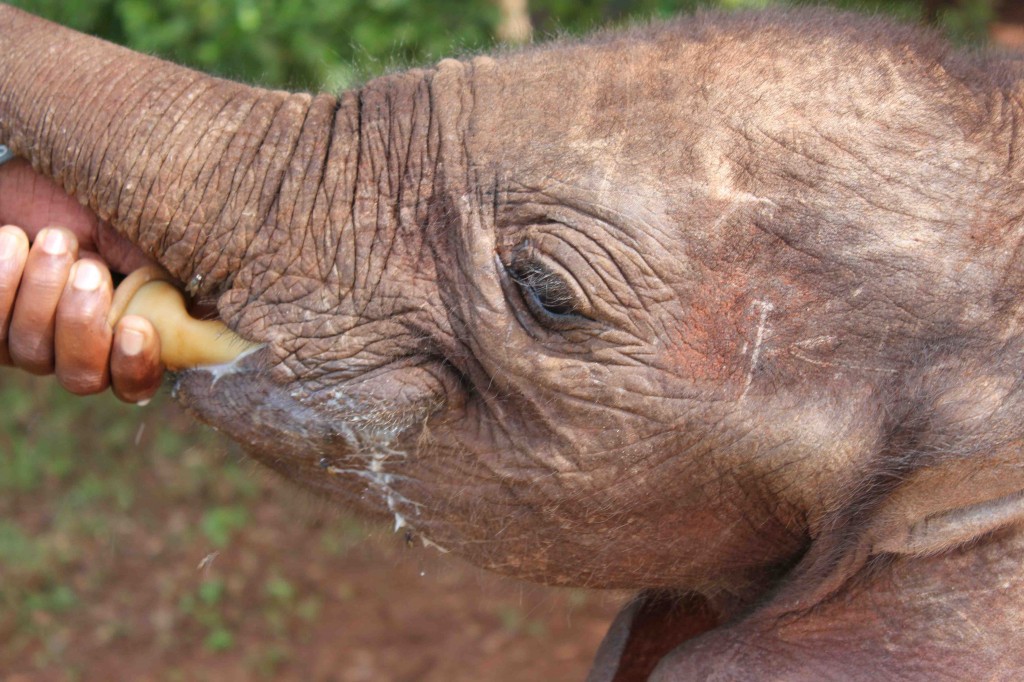
Baby elephant being fed by a keeper at the David Sheldrick Wildlife Trust, Nairobi (credit: Tammie Matson)
Then the next morning, it’s off to the Maasai Mara for the wildlife experience of a lifetime! I’ve intentionally picked July to go as that’s the start of the Great Wildebeest Migration. With nature of course there’s no guarantees, but July-October is generally the time of year when your chances are best of seeing the wildebeest migration in this part of Africa. The area is also famous for its big cats and has an abundance of plains species, including giraffes and zebras.
Our first camp for two nights is Naibosho Camp, a community partnership with the local Maasai community. It’s part of the 50,000 acre Mara Naibosho Conservancy and adjoins the Maasai Mara Game Reserve, which we will visit during our time there. Naibosho literally means ‘harmony’ and every aspect combines comfort with considerations for the environment, providing a luxury tented camp that touches the earth lightly and benefits the locals. Here you can expect to see everything you’d see in the Maasai Mara Game Reserve itself, but without the crowds.
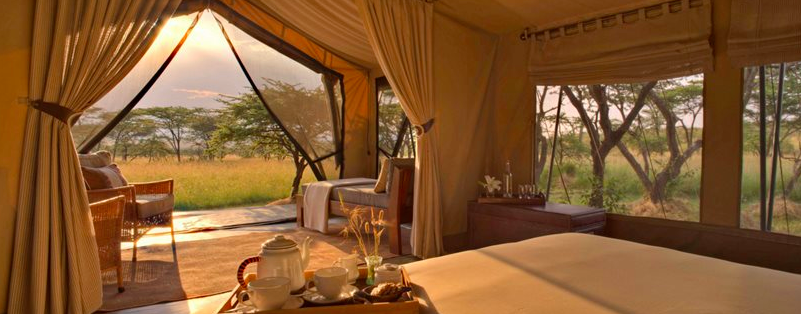
Tent at Naibosho Camp
Then we have 3 nights in two private houses, the Mara Bush Houses, in a different part of the Maasai Mara ecosystem. Each room has its own private ensuite and of course, the whole experience is tailored for you, with private vehicle and guides of the highest standard. This area is run in partnership with a local Maasai family, the Looseyia family.
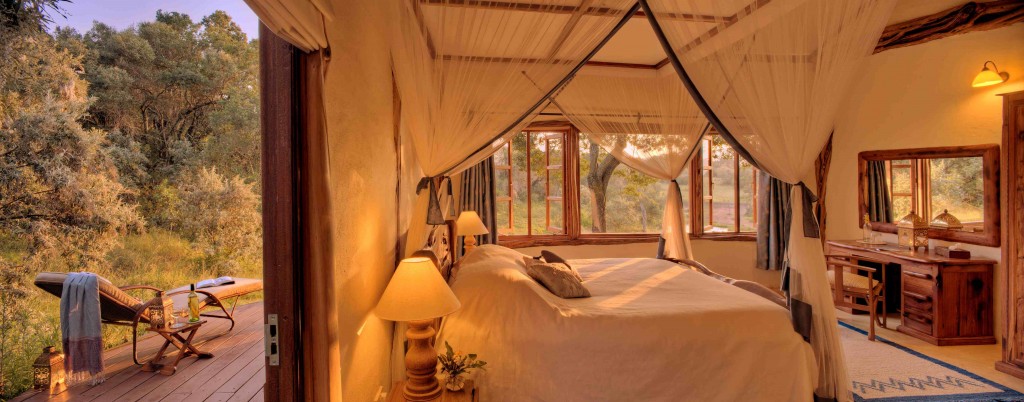
Mara Bush House room & verandah (Credit: Asilia)
If you’d like to join me on this exclusive Maasai Mara safari for an unforgettable week, plus our own private viewing at Daphne Sheldrick’s famous elephant orphanage, let me know by clicking here. Kids over the age of 12 are more than welcome as long as they are accompanied by a guardian/parent. Once you get in touch I’ll send you an itinerary and costing by email. Numbers are strictly limited (10-12) and places won’t last, so grab your spot now!
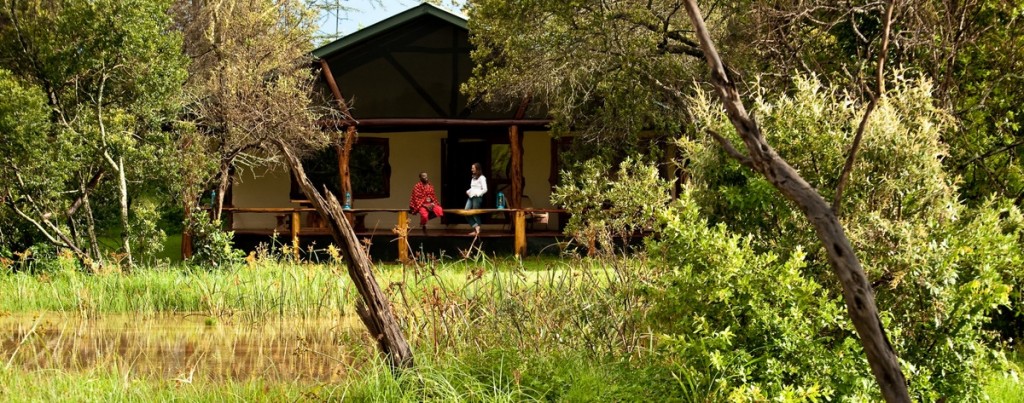
One of the Mara Bush Houses from the outside (credit: Asilia)
The Awesome Okavango
There are few places in the world where you can watch wild animals at very close range without them being affected by your presence. Botswana’s Okavango Delta is one of these rare places and if you’ve never seen it, believe me, it’s worth the visit.
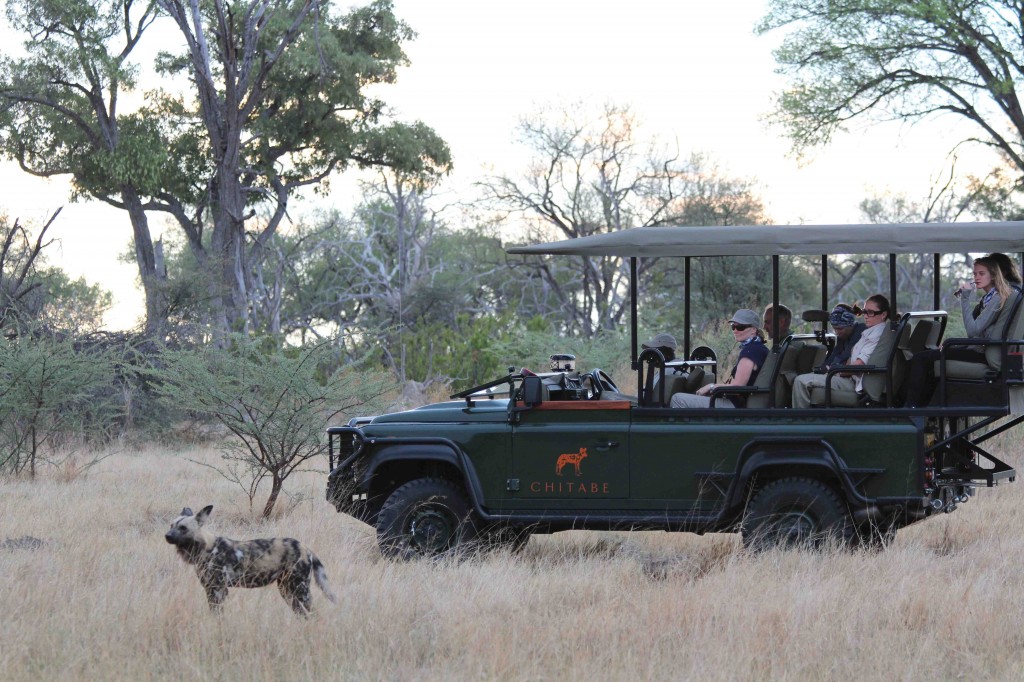
Up close and personal with an African wild dog at Chitabe – the most amazing area I’ve been to for experiences with predators who basically ignore vehicles
Ebola’s impact on elephants
Don’t worry, elephants don’t get ebola. Well not as far as I’m aware! But that doesn’t mean they won’t be severely affected by the disease in other ways. Indeed, elephant populations will very likely be impacted indirectly and I think we should be very concerned about what’s happening at the moment.
Next week, conservationists from all around the world will gather in Sydney for the World Parks Congress, including my very own co-founder of Let Elephants Be Elephants, Nadya Hutagalung, who will be speaking at the world leaders dialogues with the head of CITES, Director General of WWF, Ministers of Environment of Australia and South Africa, and several other esteemed influencers. They’ll be discussing the conservation of protected areas around the world. Meanwhile, a crisis is unfolding in Africa and in this case it’s something that the general public has a big role to play in solving.
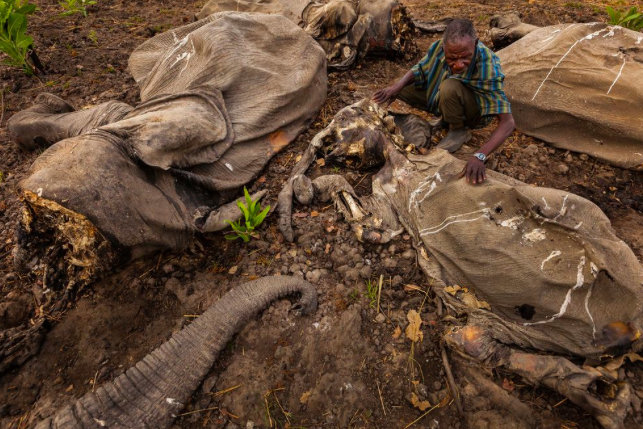
Scenes of devastation like this are becoming increasingly common in Africa, with 2/3 of Central Africa’s elephants having been illegally killed in the last decade (photo credit: National Geographic)
As you all know (because I do talk about it a lot!), African elephant populations are being devastated by the highest levels of poaching seen in decades. The rise in illegal killing is being driven by an increase in demand for ivory from Asia, especially China, and is the result of rising wealth across the region. At current rates of poaching, the African elephant population may have as few as 15 years left.
However a compounding threat is emerging in the form of ebola, due to the negative effect of the disease on tourism across sub-Saharan Africa. Anyone who’s been on safari in Africa can tell you how essential tourism is to the wellbeing of both local communities and wildlife in remote rural areas in Africa because of the far reaching socio-economic benefits it provides. When tourism dollars drop off, local indigenous people turn to alternative income options, like agriculture or even poaching, with devastating impacts on wildlife.
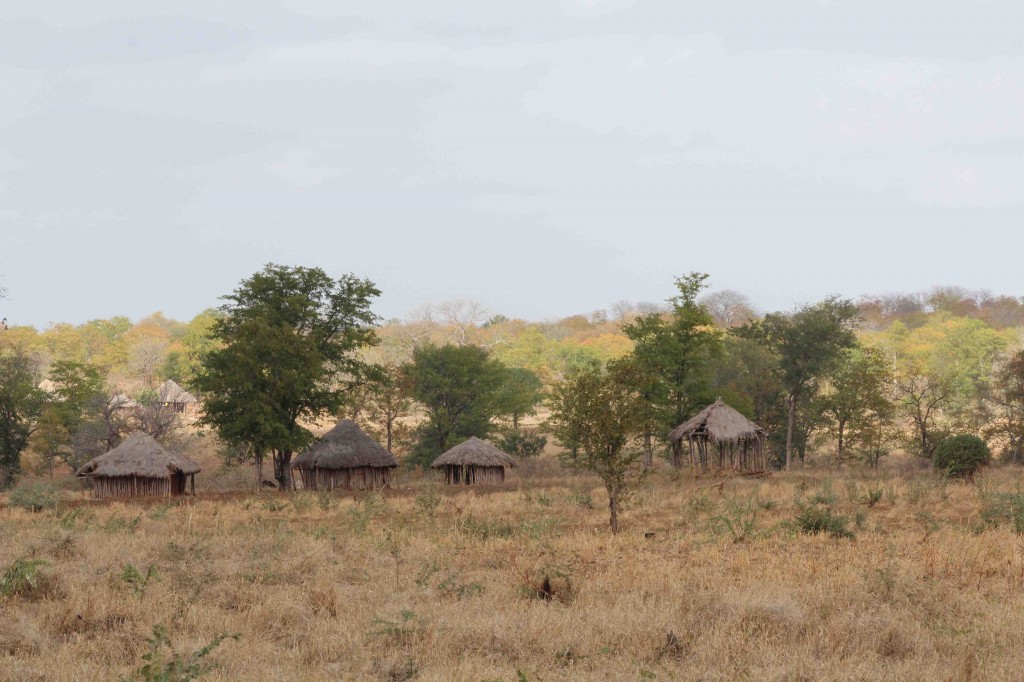
Land that is not providing economic opportunities to local people through tourism will be converted to other land uses, like agriculture, as I’ve seen happen in the Save Valley Conservancy when tourism dropped off in the early 2000s
Ignorance among the general public globally of the location of ebola-affected countries in relation to the rest of Africa is making things worse. So here are the facts. The ebola pandemic is confined to three main countries – Sierra Leone, Guinea and Liberia, all of which are in west Africa, a very long way from the typical safari destinations in places like Botswana, Namibia and Kenya. There are about 8000km between the ebola hotspot of Liberia and the safari areas in Botswana, and over 7000km between Liberia and Nairobi, Kenya . There are no direct flights to either region from Liberia – you have to connect through other countries. Liberia is closer to London, Paris and Rome than it is to these safari destinations in Africa.
Nonetheless, safari operators across sub-Saharan Africa are noticing a significant downturn in future bookings, as well as an increase in cancellations. There have been more cases of ebola in America than there have in sub-Saharan Africa in this outbreak, so you’d be more at risk there than on safari in South Africa. But the perception that safari areas could have ebola, even though they don’t and are miles away, is damaging tourism, which ultimately will make wildlife conservation efforts much harder. I think we’ll see the poaching of elephants and rhinos escalate as a result of the downturn in tourism in Africa if people don’t realise they are not in danger of contracting the disease by going on safari. And I’m not the only one who thinks so; according to this article in The Daily Beast, ebola could deal the death blow to many of Africa’s communal conservancies, which are crucial buffer zones around the continent’s limited national parks.
Since 2006, the number of elephants being poached annually has been rising, driven by an increase in the demand for ivory from Asia. A report just released in August in the Proceedings of the National Academy of Sciences reported that more than 100,000 elephants were illegally killed between 2010 and 2012. There are less than 500,000 elephants left in Africa, perhaps as few as 350,000. The current levels of poaching are not sustainable as they exceed the natural population growth rate of elephant populations.
We have very real reason to be alarmed because tourism is so essential to the continued survival of elephants in the wild.
There are very real solutions that are achievable and you can help.
- Never buy ivory. Tell your friends not to buy ivory when on holiday in places like China and Thailand. Visit http://www.letelephantsbeelephants.org and take the pledge not to buy ivory, then share the videos and facts with your friends on social media.
- Go on an Africa safari that supports local people and allows them to make a living for them and their families through tourism and conservation. If you’ve already booked a safari, don’t cancel it. You’re not at risk in the main safari countries as they do not have ebola and are taking serious measures to ensure it does not reach their shores.
I’ll be heading over to Botswana with a group of Australian and Singaporean travellers in a couple of weeks, feeling comfortable in the knowledge that there hasn’t been a single case of ebola there. It’s been heart breaking to watch the devastation unfolding in west Africa as ebola takes its horrific toll on the human population. Let’s hope that with all the international aid finally going into west Africa that the disease can be brought under control soon.
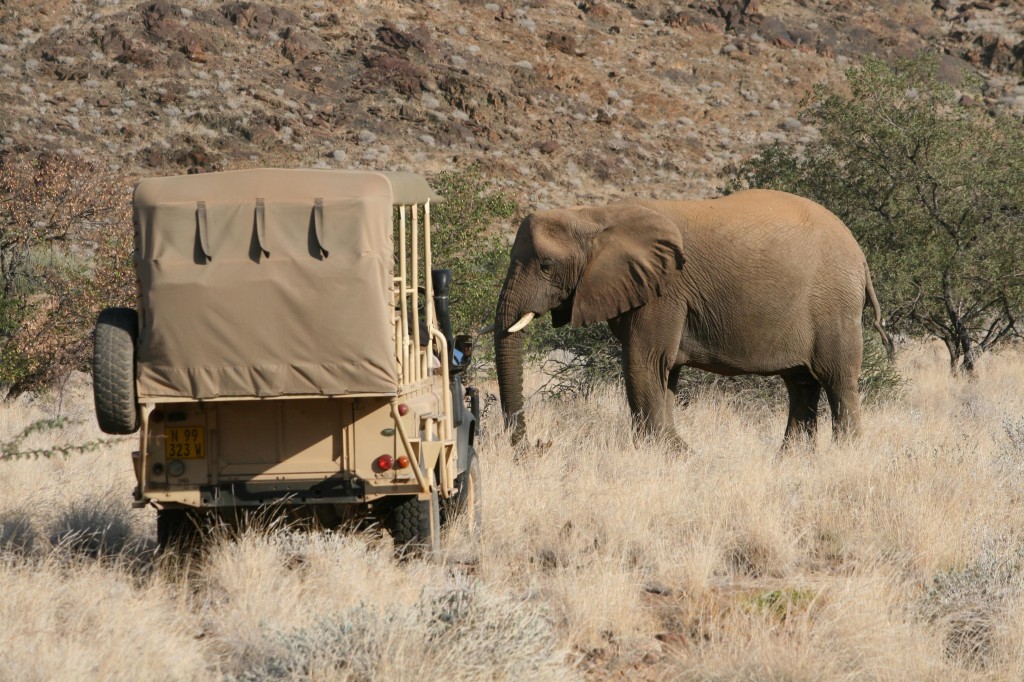
Getting up close to an elephant on safari is one of the most special experiences you’ll have in your life (I took this shot in Namibia)
Last chance to grab discounted Okavango safari spots!
Imagine that you’re sitting back with a nice sundowner, with a bowl of nibbles within reach, looking out over the magnificent wetlands of the Okavango Delta at sunset, knowing that a sumptuous dinner and a luxury room awaits you on your return to camp…. Well if you’ve ever wanted to do it, here’s your chance to do it with me in a couple of months time! It’s just over two months til I head to the Okavango Delta, Botswana with a group of Aussies and Singaporeans, and I’m starting to get excited. Most people travel to the Okavango in the peak dry season (June-October) but what many don’t know is that the green season is equally awesome. Crashing thunderstorms like only Africa can provide, baby animals being born and green grass rather than brown, are just a few of the season’s draw cards. Of course, it’s also significantly less expensive to travel then.
Happy World Elephant Day!
Today, on World Elephant Day, 12th August, the Let Elephants Be Elephants team is releasing our first webisode from Nadya and my Kenyan expedition. It’s only 7 minutes long and you can watch it right now below!
If you love baby elephants, you’ll love this short behind-the-scenes video from Africa. Please help us by spreading it as far and wide in your social networks as you can. Stay tuned as there are more to come soon! And don’t forget, if you haven’t done it yet, please take the pledge to say no to ivory at http://www.letelephantsbeelephants.org Thanks for your support!
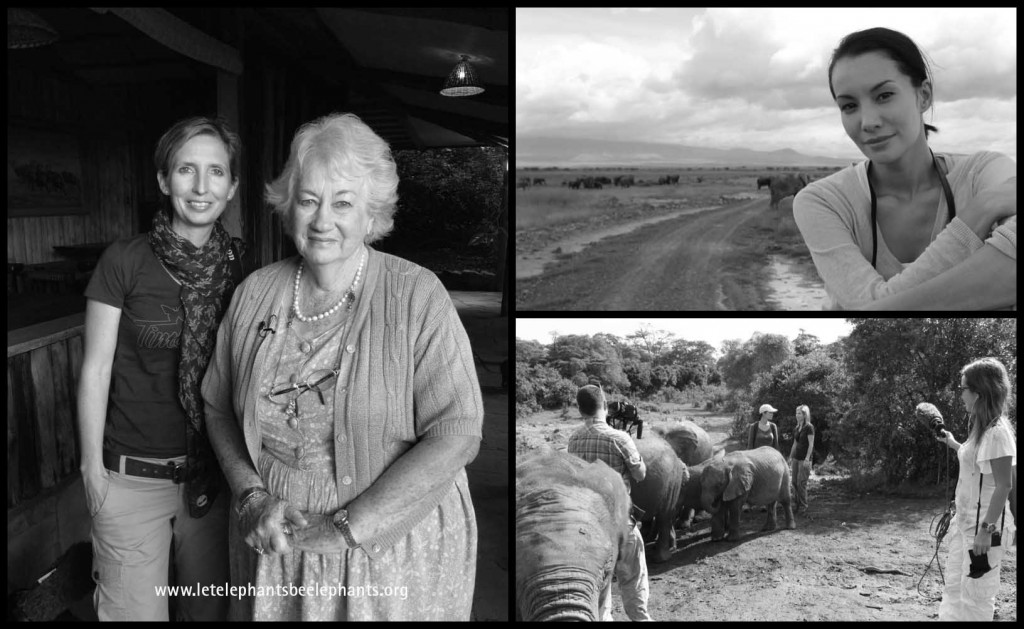
Take the pledge to say no to ivory at http://www.letelephantsbeelephants.org

